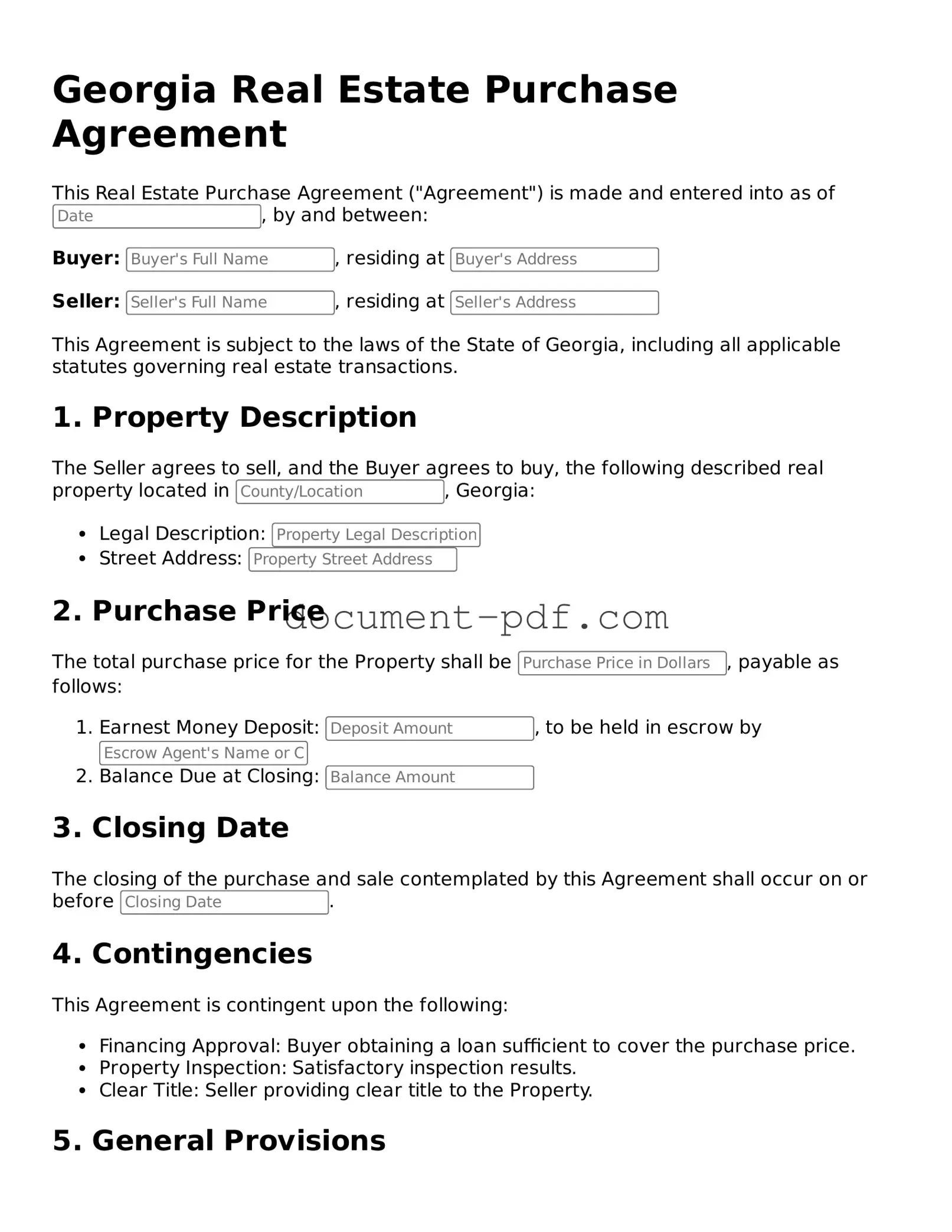Attorney-Verified Georgia Real Estate Purchase Agreement Template
The Georgia Real Estate Purchase Agreement form is a legal document that outlines the terms and conditions of a real estate transaction in the state of Georgia. This form serves as a binding contract between the buyer and seller, detailing the purchase price, property description, and other essential elements of the sale. Understanding the components of this agreement is crucial for both parties involved in the transaction.
To begin the process, please fill out the form by clicking the button below.
Access Real Estate Purchase Agreement Editor Here

Attorney-Verified Georgia Real Estate Purchase Agreement Template
Access Real Estate Purchase Agreement Editor Here
Finish the form without slowing down
Edit your Real Estate Purchase Agreement online and download the finished file.
Access Real Estate Purchase Agreement Editor Here
or
Click for PDF Form
